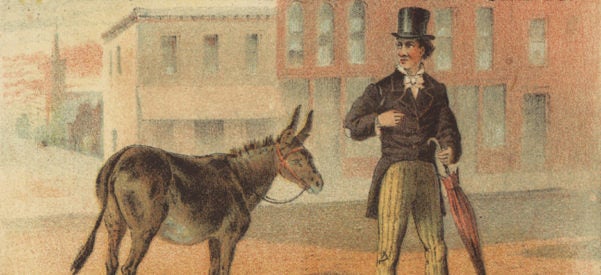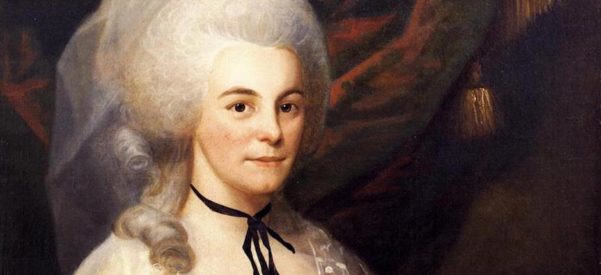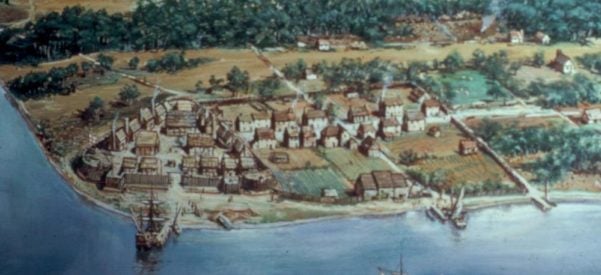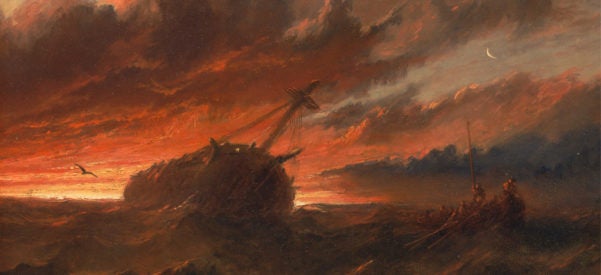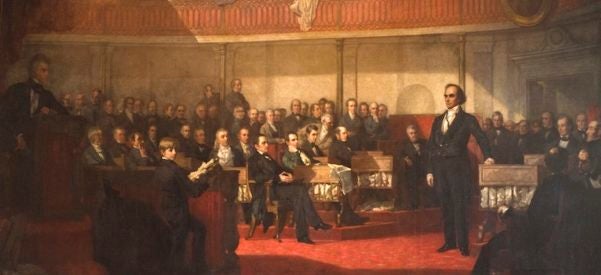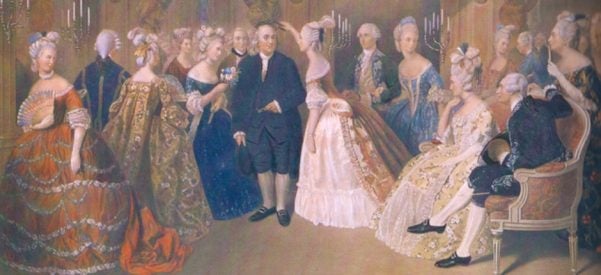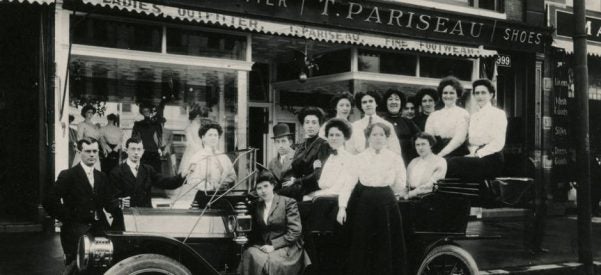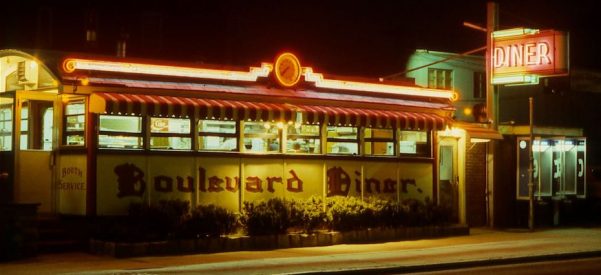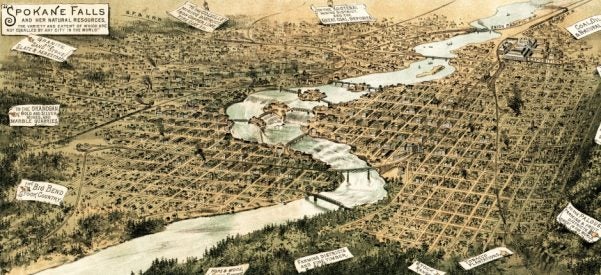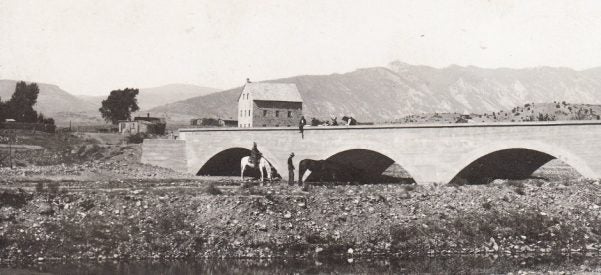Explore
: American History
In 19th-Century New England, Rule-Breaking Yankees Were a Source of National Pride
by Hugh McIntosh
September 15, 2019
Grab a burger at the James Dean diner in Prague, pay homage to the Miles Davis monument in Kielce, Poland, or stop by the Elvis fan club of Malaysia, and you’ll see how a certain brand of 1950s “cool” still shapes perceptions of America abroad. What people mean by cool can be hard to pin down, but cultural historians tend to agree on some basics: defiance, self-control, individualism, and creativity—ideals epitomized by the jazz and beat movements of the early …
Read More >
In 1837, the 80-Year-Old Widow of the Late Treasury Secretary Was Delighted by the Beauty of the Nation
by Tilar J. Mazzeo
August 1, 2019
The musical Hamilton introduced theatergoers to Eliza Schuyler, the wife of Alexander Hamilton, and her sisters Angelica and Peggy. But there is much more to Eliza’s American life than we can see in the musical. When her distant cousin, James Fenimore Cooper, wrote about life on the Hudson River frontier in The Last of the Mohicans, he might as well as have been describing her girlhood. Later, as part of that generation who fought for, and won, American independence, Eliza …
Read More >
Both the English and the Native Americans Used Children to Learn the Mysterious Ways of Their New Neighbors
July 18, 2019
In 1608, Thomas Savage, age 13, arrived on the first ship from England bringing supplies to the newly founded Jamestown colony. He had been in Virginia just a few weeks when he was presented as a gift to Wahunsenaca, the great Powhatan who ruled over most of the people along the rivers leading into the lower Chesapeake Bay area. In return, Powhatan gave the English a young man named Namontack.
Such exchanges of young people were considered normal. As English …
Read More >
Stephen Hopkins, Colonist at Both Jamestown and Plymouth, Proposed a Government Based on Consent of the Governed
by Joseph Kelly
June 24, 2019
We don’t like to talk much about Jamestown. Established in 1607, it was the first permanent English settlement in the New World. But it was a shameful start to America.
Even before they landed, the governing councilors were at each other’s throats. John Smith, a former mercenary, was nearly hanged—twice—and narrowly escaped an assassin. Another councilor, George Kendall, was executed by firing squad. John Ratcliffe deposed the colony’s first president, Edward Maria Wingfield, and installed himself as president. Later, …
Read More >
New England Statesman Daniel Webster Found Religion in Centralized National Power When it Served His Region’s Interests
by Christopher Childers
April 18, 2019
For generations, school children memorized the ending to Daniel Webster’s “Second Reply to Hayne,” delivered during the famous Webster-Hayne debate of January 1830. This most-famous-of-debates began in a modest fashion, with an argument over westward expansion and morphed into a discussion of tariffs and then nationalism versus states’ rights. Over time, the discussion came to symbolize something much more about American unity, as Webster’s soaring defense of nationalism and American nationhood, crowned with the words “Liberty and Union, now and …
Read More >
Living Abroad, the Founder From Philadelphia Saw America's Essence in Turkeys, Succotash, and Cranberries
By Rae Katherine Eighmey
February 19, 2018
In the midst of the American Revolution, Benjamin Franklin envisioned the turkey as an exemplar of the ideal American citizen. In a 1783 letter home to his daughter Sally, written while Franklin was serving as chief diplomat to France, he wrote about the “ribbons and medals” presented to the French by grateful Americans in thanks for significant military and financial support. The tokens bore an image of an eagle—but, Franklin explained, some recipients complained that the workmanship was not up …
Read More >
An Intimate Family History of New England's Franco-Americans
By Robert B. Perreault
December 7, 2017
Whenever my family visits Québec, people other than our relatives are surprised to hear Americans—even our grandchildren, ages five and six—speak fluent French. They’re amazed to learn that French is our mother tongue and that we also speak English without a French accent. Likewise, if we leave our native New Hampshire to travel elsewhere in the United States, we get blank stares upon mentioning that we’re Franco-Americans from New England.
“Franco-American, as in canned spaghetti?” some ask.
I roll my eyes and …
Read More >
For 135 Years, the Iconic Eateries Have Been Our Home Away From Home
By Richard J. S. Gutman
November 27, 2017
Driving north on Route 95 through Connecticut, I noticed a billboard advertising a local diner. Its immense letters spelled out: “Vegan, Vegetarian, Gluten-Free and Diner Classics.” I knew a seismic shift had occurred when Blue Plate Specials—hands-down favorites for nearly a century such as meat loaf, hot turkey sandwiches, and spaghetti and meatballs—were last on a list of diner offerings.
Over their long history, diners have been a subtle part of our built environment and also our inner landscapes. They …
Read More >
In 19th-Century Spokane, Risqué Performances Set off a Battle Over Civil Morality
By Holly George
November 6, 2017
In the spring of 1897, Spokane, Washington’s Spokesman-Review published an exposé of its city’s thriving red light district—known as Howard Street. The newspaper lingered on distasteful scenes in variety theaters with names like the Comique or the Coeur d’Alene: Places where a man could pick up a game of keno, watch a show, and—for the cost of a drink—enjoy the flirtations of “waiter girls” in short skirts. The most controversial and profitable feature of the Howard Street varieties were their …
Read More >
A System Inherited From Colonial Spain Kept Americans in Servitude Even After the Civil War
By William S. Kiser
November 2, 2017
Imagine a time and place where a small debt—even just a few dollars—could translate into a lifetime of servitude not only for the debtor, but also for his or her children. For much of the 19th century, the American Southwest was just such a place. There, a system commonly called debt peonage relegated thousands of men, women, and children to years of bondage to a master.
This system of unfree labor came into existence in the 1700s, when the region was …
Read More >


